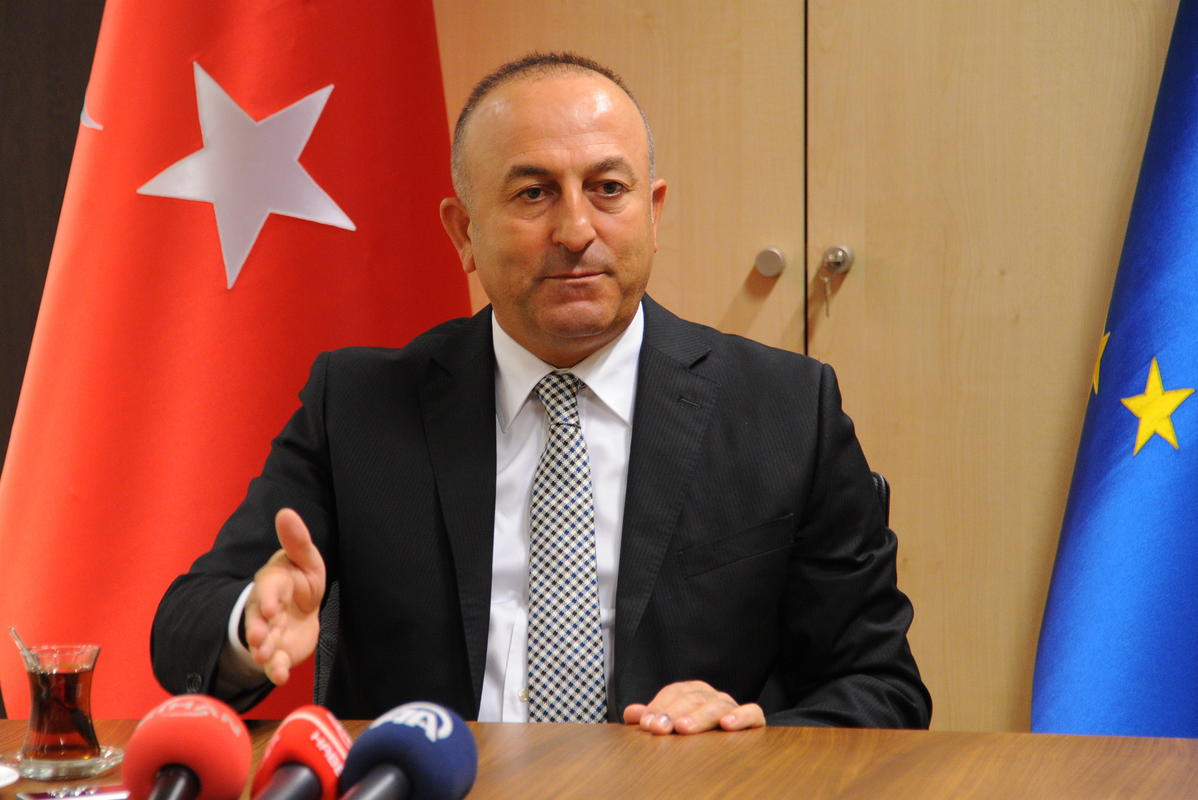Each new working day for the German press begins with another article about Erdogan, Turkey and tensions in the German-Turkish relations. Today was not the exception: the meeting of the heads of diplomatic departments of the two NATO allied states was designed to calm down the heated tension between Ankara and Berlin. Particularly strongly the German side was touched by President Erdogan's comparison of modern Germany with the Third Reich. Those familiar with the post-war psychology of the Germans understands how sensitive Germany and the overwhelming majority of its population is to the fascist past. I remember that once there was a curious case in Baku when one of the applicants of the Schengen visa in the German embassy wittyly, as it seemed to him, greeted the consul with the notorious phrase 'Zig Heil'. Then the hapless tourist got into the list of persons non grata - for life.
Hardly Turkish diplomacy is not aware of modern Germany's morbid perception of accusations of fascism. However, the day before the meeting with his German counterpart Sigmar Gabriel, the Turkish Foreign Minister Mevlut Cavusoglu, as if to spite, repeated in his interview to the Huriyyet newspaper the theses of his president: the refusal of several local city administrations to hold meetings between the Turkish ministers and the Turkish diaspora in Germany is similar to 'Nazi methods'. The reaction of the German side was immediate.

"There are lines that should not be crossed and one of those is the comparison with Nazis," the German Foreign Minister Sigmar Gabriel said during a meeting with his Turkish counterpart. He also expressed Germany's firm intention to seek the release of the Turkish-German journalist of the Die Welt newspaper, Deniz Yucel. According to Gabriel, the comparison with Nazis was the first topic of the talks.
Cavusoglu, in turn, urged Germany to mutual respect. "We must respect each other. We ask Germany to decide whether it considers Turkey as a friend or an enemy. Turkey has no reason to look at Germany as an enemy, "he said. Further, the Turkish minister focused on the "dangerous tendency" when anti-Turkish and Islamophobic statements are often heard from German media and politicians. Cavusoglu added that the rise of populism and anti-Semitism in Europe is reminiscent of the situation prior to World War II. The head of Turkish diplomacy also said that the activity of supporters of amendments to the Turkish Constitution in Germany is limited, and there are no opponents. In Hamburg, three conference halls, as well as one hotel refused to provide Cavusoglu a rostrum for performances. The minister was forced to address from the balcony of the Turkish consulate.

A few days earlier, the Turkish President Erdogan threatened to come to Germany and address supporters, regardless of whether the German authorities would agree on it,and otherwise "raise the uprising." According to the political scientist Kristian Brakel, such Erdogan's statements are aimed primarily at the internal audience. The expert fact knows nothing about the Turkish president's plans to visit Germany: according to him, there have been no such requests from the Turkish side to the German government, and it is unlikely as long as there is such a strong opposition in Germany.
There is an opinion in the camp of Angela Merkel that the Turkish authorities, worried about not the best for them referendum forecasts, are trying to provoke Germany in every possible way to mobilize supporters with the image of an external enemy. In response, the German government is trying to keep cool. However, the German side itself is not entirely without sin. The argument of most German politicians opposing Erdogan's supporters in Germany is that they should not provide a podium for advertising a referendum aimed at restricting democracy (which already contains a certain contradiction, since the referendum is a direct expression of the will of the people). The argument of state bodies which prohibit meetings of Turkish politicians with representatives of the diaspora is reduced to "security reasons" that make rallies impossible. But the Turkish authorities are hardly naive enough to believe that there is no direct relations between the position of politicians and the decisions of local structures.
Ankara does not forget another thing as well: with an enviable regularity various German cities hold rallies of supporters of the Kurdistan Workers Party, holding flags of 'Kurdistan' and portraits of Abdullah Ocalan. At the same time, the PKK is considered a terrorist organization both in Turkey and the EU, but in the case of rallies of their supporters, security reasons are not a problem for local administrative bodies. Thus, each of the parties should fundamentally rethink their own policies towards each other. The arrest of a German journalist in Turkey or the ban on the addresses by Turkish politicians in Germany are only external manifestations of the permanent confrontation that has lasted for several years, during which the Bundestag adopted the resolution on 'the Armenian Genocide'.






